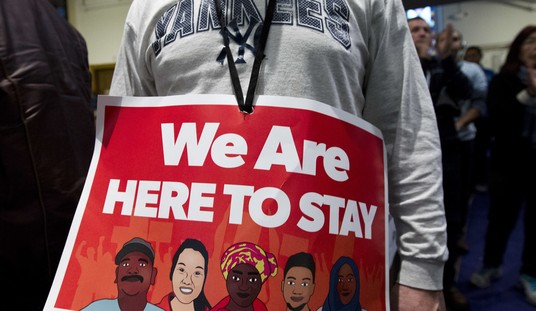(VATICAN CITY) Of all the questions I’ve fielded since the election of former Cardinal Jorge Mario Bergoglio as Pope Francis, the one that has been most difficult to answer clearly is the direction in which the new pontiff will take the Catholic Church on economics. It’s no secret that while Pope Francis clashed with the Kirchner government in Argentina over its policies on abortion and gay marriage, he also sharply criticized its policies on fiscal austerity and its impact on the nation’s poor. That has some American conservatives worried that the new Pope will push the debate to the left in the US.
I asked Kishore Jayalaban of the Acton Institute to talk with me about that very question. Jayalaban has lived in Italy for more than a dozen years, part of them working at the Vatican, and he says the impression that Francis will push economic arguments to the left is a misunderstanding of both Catholic economic thought and the economic situation in Argentina — where capitalism is much more rife with cronyism and corporatism than in the US. While Catholic doctrine teaches that public policy must offer preferential treatment of the poor, Jayalaban explains that this leaves a wide spectrum of options that fall within “prudential judgment.” Jayalaban is working on an Acton endeavor called Poverty Cure, which just launched — fortuitous timing:
Kishore Jayabalan on the economics of Pope Francis from Ed Morrissey on Vimeo.
Jayalaban’s colleague at Acton Sam Gregg also addressed this today at National Review:
No one in their right mind would describe Jorge Mario Bergoglio, S.J., as an ecclesiastical Milton Friedman or a closet free marketer. Plainly, he’s not. But Francis does have two particular concerns with regard to economic issues. One is the naked materialism and consumerism that disfigures so many peoples’ lives. No Catholic is going to affirm people seeking their salvation in the endless acquisition of stuff. Francis’s asceticism is a clear repudiation of that mindset.
Francis’s second concern regarding economic issues is the materially poor. Again, that’s precisely what you would expect from any orthodox Catholic. As Archbishop Charles Chaput of Philadelphia (who’s no social liberal) once memorably wrote: “Jesus tells us very clearly that if we don’t help the poor, we’re going to go to hell. Period.” …
Argentina is a once-prosperous nation that experienced a rapid spiral into seemingly perpetual economic dysfunction throughout the 20th century. Over and over again, Argentina has been brought to its knees by the populist politics of Peronism, which dominates Argentina’s Right and Left. “Kirchnerism,” as peddled by Argentina’s present and immediate past president, is simply the latest version of that.
In concrete terms, this pathology translates into big government, high taxes, hostility to business and foreign investment, heavy debt, and a level of corruption that defies imagination. That adds up to a strange mixture of unsophisticated Keynesianism and naked crony capitalism. And it doesn’t benefit the poor. It benefits the powerful and well-connected. In Argentina, you don’t get ahead through being economically entrepreneurial; you get ahead through political power and as many privileges from the state as you can.
This is the disaster that Pope Francis’s limited commentary on economic matters has sought to address since he became Argentina’s leading churchman in 1998. And Francis has made it abundantly clear that liberation theology is not the solution. One of the reasons he’s not so popular with some of his fellow Jesuits is that he stopped the Jesuits in Argentina from going down that path in the 1970s and 80s. Liberation theology’s Marxist components, he knew, were plainly incompatible with Catholicism. Father Bergoglio also foresaw that it would turn much of the Church into nothing more than just another utopian-revolutionary movement, as occurred in other parts of Latin America.
Jayalaban also explains that Curial reform really refers to the kind of organizational issues that are hardly unique to the Vatican. Also explaining Curial reform was Fr. Marcel Guarnizo, a theologian working in Rome, and a fellow American. I wanted to speak with Fr. Marcel after he debunked a story about a “dossier” that caught fire in the world press based on … well, not much at all, as Fr. Marcel explains here:
Fr. Marcel Guarnizo from Ed Morrissey on Vimeo.
I recorded this interview on Wednesday afternoon, but the surprisingly short election ended up pushing this back until today. Fr. Marcel stood in the rain for about 20 minutes to answer my questions, and he’s a Hot Air fan … or at least he was, until I made him get soaked.








Join the conversation as a VIP Member